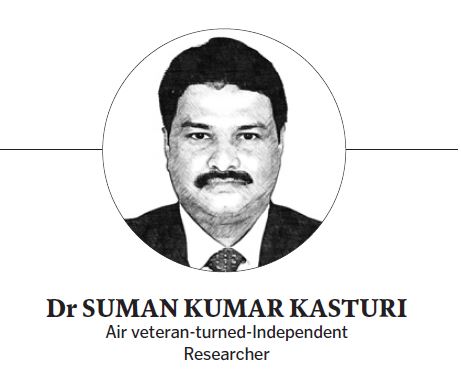Bankers handle heavy mental pressure from all ends to execute their roles, even during emergencies such as Covid-19
Published Date – 23 January 2024, 11:59 PM

By Dr Suman Kumar Kasturi
Beyond doubt, banks herald any nation’s growth. In Indian settings, banking is the foundation for the overall economic development of the country. The banking system has undergone major changes over the years with the advancement in technology — of course, it’s a need of the hour too. If we deeply analyse the development of the banking sector, mainly it can be divided into three phases — the early phase which lasted till 1969, the nationalisation phase which continued from 1969 to 1991 and the liberalisation phase which began in 1991 and continues to date.
Each phase of the aforesaid banking development has equally imposed a few challenges to the overall functionality of the banking sector ie, from adopting new technologies to implementation of various policies, both external and internal.
Stressful Job
The banking industry, as never before, has been facing a wide range of challenges — from regulatory changes to increasing competition from various digital players. In a nutshell, the banking industry has been facing many challenges such as economic uncertainty, regulatory changes, cybersecurity risks, increasing competition, fintech disruption, customer expectations, manpower shortage and talent management. The ultimate solution banks have to address these challenges is to invest in technology, partner with fintech, and explore new business models.
On the other hand, banks usually follow a mechanism called bank stress test, a method to analyse and determine whether a bank has enough capital to withstand an economic or financial crisis. Nonetheless, in the opinion of many bankers, there should be a similar test which might be termed Bankers Stress Test, to analyse and determine whether a banker has enough strength to withstand the stress.
Indeed, banking has become a more stressful job than any other job in the market. A validation of this argument can be extracted from an article titled, “When No One Wants a Promotion: The Appraisal System in Public Sector Banks Needs to Improve.” The author, Shyamal Majumdar, clearly explains the present-day situation of the banks due to which no one would like to opt for a promotion.
Employee Fatigue
Even though banking hours on paper are limited to some eight hours, bankers typically work nearly 12 hours a day — a fact that is not known to most of the general public. The extended hours of working, for sure, shatter the work-life balance, which harms the overall functionality of the individual. Furthermore, bankers commute to their workplaces on a day-to-day basis. So, the travel time adds to the stress.
Customarily, a harmful work-life balance occurs when work becomes irresistible and takes precedence over personal life, leading to negative magnitudes for an individual’s well-being. According to most bankers, they have been experiencing negative consequences due to constant overwork, neglected personal life, burnout, lack of self-care and strained relationships.
There’s a saying, “Work expands to fill the time allotted,” meaning work spills over into personal time, if not restrained — leading towards employee fatigue. To overcome high fatigue and an unhealthy work-life balance, bankers need a long break ie, an interruption in continuity, a pause in work — for it allows them to pause and rest so that they can resume whatever they have been doing with new energy. But then again, unfortunately, breaks are often associated with guilt, and this is because while on a break, an individual is often tranquil and ostensibly doing nothing, and there is no means to prove that this ‘doing nothing’ will help an individual do, feel and perform better in the impending time.
Valid Demand
The aforementioned discussion is precisely suitable for the five-day banking demand of bankers. In a recent development, ever since the news started making the rounds about the demand for five-day banking of public sector banks, there have been various opinions on this .
Now, the million-dollar question which arises is — whether or not five-day banking is a necessity. Certainly, the demand is not the bankers’ culpability, but it is their legitimate demand to have some quality time to spend with their family members, to address the geriatric needs of their parents and elders, and many other things which warrant just time and nothing else!
Yes, changing times demand changes in work culture too. It’s time to concede how imperative breaks are for our mental and physical health. Breaks are very significant, because continuously working without taking proper rest harms not just productivity but also mental and physical health and thus an employee’s overall well-being.
It’s a wonder why some people are sceptical about this valid demand of bankers. Many organisations have adopted the five-day working culture and have proven to be fruitful with more productivity as the outcome.
Of the many factors that affect productivity, taking care of one’s physical and mental health is a big part of it. Correspondingly, the Fatigue Risk Management System, which is a comprehensive approach that is based on applying scientific evidence to manage employees’ fatigue, evidently supports the same.
In sum, bankers handle heavy mental pressure from all ends to execute their roles, even during emergencies such as the Covid-19 lockdown period. By staying agile and adapting to changing market conditions, banks have remained competitive and continue to meet the needs of their customers. Nonetheless, it should not be at the cost of every banker’s high-stress levels. At this juncture of an alarming moment, five-day banking, if implemented, may prove to be a blessing.





